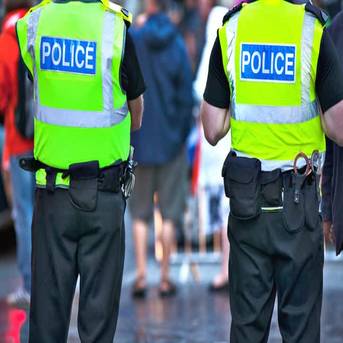Stop and Search Laws to be changed?
Police Chiefs are calling for a change in the 'stop and search' laws to defeat knife crime...link
You may have witnessed people driving 'dangerously' or you may have been stopped for dangerous driving, but are you aware that there are other charges that fall within the same category of offence?
It's one of the most serious motoring offences a driver can commit, you are considered to be driving dangerously if the manner in which you are driving is way below that of a competent driver.
If found guilty of dangerous driving you could receive up to a six month custodial sentence, a driving ban and a fine up to £5000; if your trial is heard in a Crown Court, the prison sentence could be up to two years, an unlimited fine, and a driving ban.
Some examples of dangerous driving -
- Road rage
- Driving when you shouldn't, for example with a broken leg
- Driving when your vehicle was defective, endangering others.
Inconsiderate Driving.
We all have experience of drivers being inconsiderate, but does the law have the same view?
Some examples are-
- Not dipping your headlights
- Driving too slow
- Using a bus lane to queue jump
- Lane hogging on the motorway
- Even deliberately splashing people.
If you think it's inconsiderate driving then it could well be, the difficulty here is intent, people do forget to dip their headlights, most of us have driven through a puddle and splashed someone by accident, but if you had done those things deliberately and it was proven, then you could be prosecuted for inconsiderate driving, and face points, a fine or maybe prosecution in court.
Careless Driving.
Often called driving without due care and attention, this is when you're driving falls below that of a standard driver, and is the lesser offence to Dangerous Driving.
If you are accused and found guilty of careless driving you can expect a minimum of three points on you license.
If you have been stopped for any of the above offences it's important to seek legal assistance as soon as possible and to ensure you record all the details of the incident, as this may help your defence.


What is Double Jeopardy? and is it still Law in the UK?..
linkPolice Chiefs are calling for a change in the 'stop and search' laws to defeat knife crime...link
Its time social media worked better with the police...link
Fraud Solicitors. Fraud could be described as a deception in order to secure unfair or unlawful gain, usually monetary...link
Over 2000 section 60 notices have been issued in London last year..
linkMotoring Offences - Drink Driving.
If you have been stopped for drink driving it is important that you obtain legal advice as soon as possible and, to assist y..link
What is meant by 'handling stolen goods'...link
Totting up points on your driving Licence.
When a driver accumulates twelve points or more in a three-year period on their driving license they are normally s..link
Police Chiefs are calling for a change in the 'stop and search' l..
linkDomestic violence is not just physical violence, it can take many forms, which a person may use to control a partner, if you are suffering domestic violence cal..link
There is no age laid down by the law stating when your child is old enough to be left home alone; however, it is against the law to leave a child home alone if..link
Neighbour Disputes can escalate to affect your life and enjoyment of your property, if handled in the wrong way they can cause tension and in some cases argumen..link

Solicitors.com are not a firm of solicitors, and any content on the site should not be used in substitute for obtaining Legal advice from a solicitor regulated in the UK, Solicitors.com recommends that you contact a firm of solicitors to discuss your individual legal requirement. Whilst we strive to bring you accurate up to date content, all content on this site is not legal advice and is not guaranteed to be correct. Use of this site does not create a client relationship.